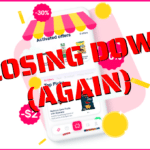
It’s common advice if you want to invest, but don’t know a lot about the markets – buy what you know. Just think of the products you like and the brands you buy, and consider owning a little piece of the company that makes your favorite coffee, or toothpaste.
Still not sure where to put your money? Maybe a coupon will help make up your mind.
A major bank is proposing a new system that will link your financial portfolio with your shopping habits – offering you coupons based on the investments you make.
Need more Kellogg coupons? You might get some, if you buy some stock in the company. Do you already own stock in Procter & Gamble, but buy your personal care products from Unilever? Maybe a coupon for a P&G product will change your preference – and help boost the bottom line of the company in which you have a financial stake.
The system is described in a pair of U.S. patent applications recently filed by the Toronto-Dominion Bank. The bank envisions a website or mobile app that will serve up coupons and recommend purchases that sync with your investment portfolio.
“For example, based on a purchase of General Mills stock,” the patent documentation reads, the system “may generate a retail coupon including a discount on the purchase of a General Mills product.” That would then encourage you to buy General Mills products, boost the company’s sales, improve the stock’s performance – and benefit your portfolio.
Meanwhile, if you own stock in a General Mills competitor, but buy General Mills products, the system could offer you coupons for alternative products. “The user may have purchased a pint of Haagen-Dazs ice cream,” which is owned by General Mills, the application reads. The system may then offer a coupon for an “alternative to the purchased Haagen-Dazs that might be related to the user’s actual investment portfolio.”
It’s a unique way to ensure you’re staying true to the companies in which you invest, and not inadvertently supporting the competition. The system aims to help address “a new investor’s inability to connect a daily decision, such as a purchase of cereal or bathroom tissue at the grocery store, with a performance of a security held within his or her investment portfolio.”
So the advice still applies: buy what you know. And if you can buy at a discount – even better.










